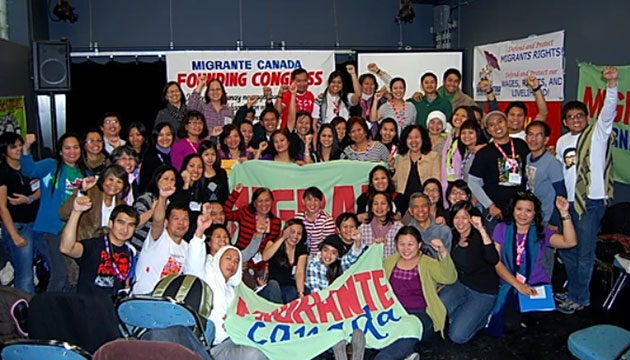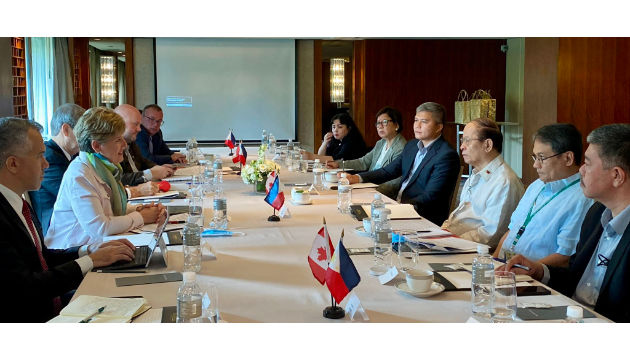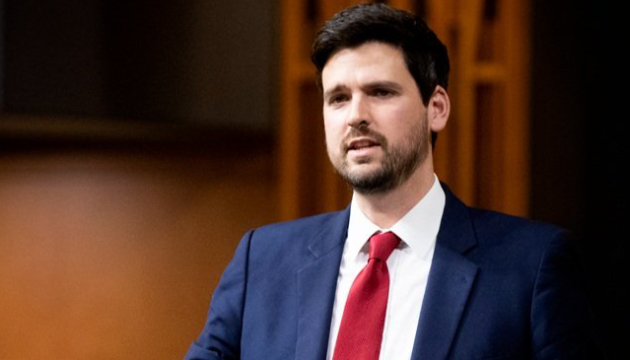The discoveries of unmarked graves first in Kamloops, BC at the Kamloops Indian Residential School of 215 graves and just recently of 751 graves near a former Saskatchewan residential school shook Canada’s core. We, as a nation, suddenly lost our moral compass.
There were over 130 residential schools operated by the Canadian government and Christian churches beginning in the 1880s all the way to 1996. The discoveries in Kamloops and Cowessess in Saskatchewan are but two of what we all suspect will be many more of what this truly is – a genocide. These graves were of children whose families never saw them come home.
Why should Canadian Filipinos care about this national issue? There are at least two things that Filipinos identify with Canada’s First Nations peoples: colonization and racism.
Our history tells of generations of Filipinos who were treated as second-class citizens for hundreds of years under a European colonial power. Christianity was brought to Philippine shores as a tool to colonize. We almost lost our cultural identity. The residential schools were used as a tool to “assimilate” Indigenous youth into what was then thought of as Canadian society, to educate and convert them into the Christian faith.
Filipinos everywhere in the world face racism in these modern times. Amid the pandemic, anti-Asian hate is at an all-time high. First Nations peoples continue to fight racism as well, painfully on traditional lands that the first Europeans claimed as their own.
The discoveries of the unidentified graves of Indigenous youth come as we Christians grapple with the irony that some of those residential schools were run by the same pro-life, anti-abortion Catholic church most of us are members of actually played a major part in this genocide. We as immigrants grapple with the irony that the same government that welcomed us was also party to this crime against humanity.
Even with far-reaching soul-searching, there will be no quick answers. We can not simply point fingers at church and government. Accountability extends to everyone in Canada.
The United Nations Declaration on the Rights of Indigenous Peoples (UNDRIP) has been in place since 2007. In 2015, Canada finally adopted the Truth and Reconciliation Commission of Canada’s (TRC) Calls to Action as its response to UNDRIP which promises to redress the shameful legacy of residential schools and advance the process of reconciliation.
It has been years since these documents have been adopted and yet Canada is nowhere near fulfilling its promise of reconciliation. The discoveries of unmarked graves of children whose families continue to grieve and testimonies of residential school survivors demonstrate how complicated this process is and will continue to be.
In 2008, former Prime Minister Stephen Harper formally apologized to victims of residential schools in the hopes that such an apology would pave the way to healing and reconciliation. There is yet to be an apology from the Vatican but members of Catholic groups have begun to take steps towards making amends.
A statement issued by the Roman Catholic Diocese of Calgary expressed that “the Catholic Bishops of Alberta and Northwest Territories, apologize to those who experienced sexual and physical abuse in residential schools under Catholic administration.” The Sisters of St. Ann(SSA) based in Victoria, BC has signed a memorandum of understanding with the Royal B.C. Museum to provide the museum and the Indian Residential School History and Dialogue Centre at the University of British Columbia access to the order’s “private archival records.” The SSA is an order of Catholic nuns who staffed the Kamloops Indian Residential School.
What we as Canadian Filipinos share with the rest of Canada is the privilege of living in these unceded territories of the First Nations peoples. We are privileged in that we enjoy this way of life in Canada, thanks to our First Nations friends, classmates, co-workers, mentors, family members, community leaders – all of whom deserve our support in trying to right the wrongs inflicted on these proud Indigenous peoples.
We can, in small ways, start by constantly reminding ourselves where we live and acknowledging the privilege we enjoy at the expense of our First Nations brothers and sisters. A word of thanks or encouragement to Indigenous youth we may come across on a daily basis at the coffee shop, in school or at work will go a long way at coming out of this shameful Canadian past which, while we may not have been an active part of, we are still heirs of.
A quote from the late Macliing Dulag, Kalinga chief and defender of the Cordillera Indigenous tribes, comes to mind: “You ask if we own the land and mock us saying, ‘Where is your title?’ When we ask the meaning of your words you answer with taunting arrogance, ‘Where are the documents to prove that you own the land?’ Titles? Documents? Proof of ownership? Such arrogance to speak of owning the land when we instead are owned by it. How can you own that which will outlive you? Only the race owns the land because the race lives forever.”
By Rachel Ramos-Reid for the Canadian Filipino Net Editorial Board










